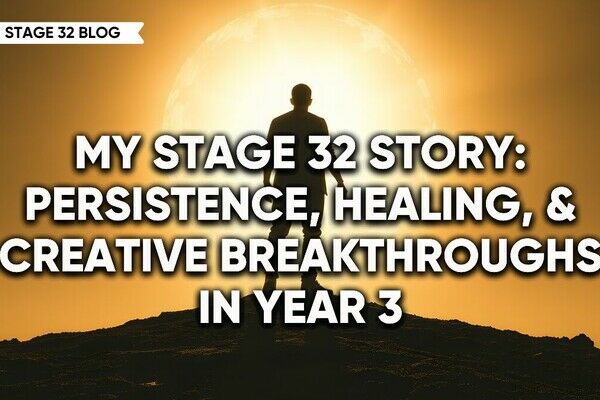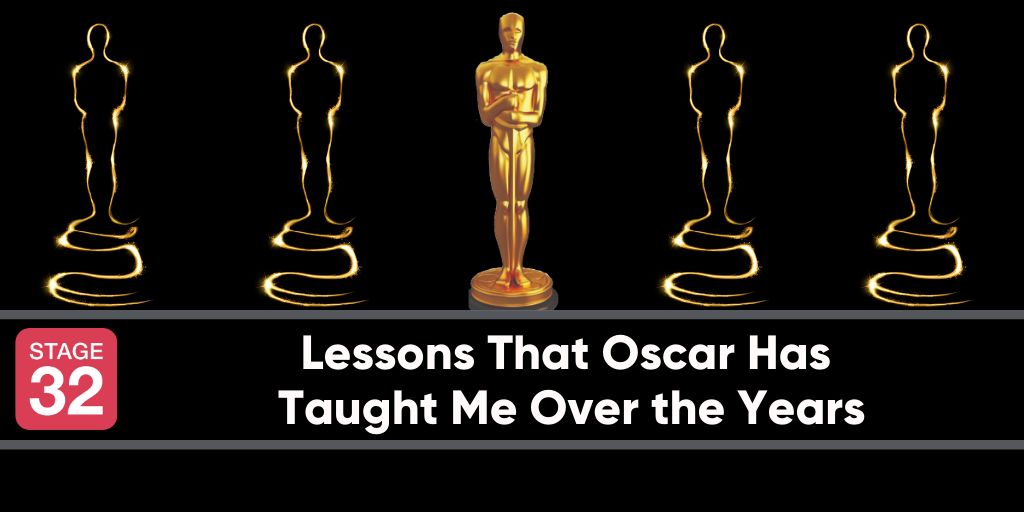The Reasons I Always Wanted an Oscar and How I Evolved and Grew Past That
The first great movie I ever saw was Dead Poets Society at around the age of eight, two years before I decided I wanted to make movies. There was just something about it that raised the bar compared to other movies. Its excellence involved vocabulary and concepts that I wasn’t familiar with at the time—cinematography, casting, score. But when I found out what an Oscar was, I knew that Dead Poets Society deserved one.
When I started to write screenplays two years later, I knew that people wouldn’t take me seriously because I was a kid. So I gave myself a lofty goal that I believed would take me a long time to accomplish so that it would keep me focused. I would win an Oscar for Best Original Screenplay.
As I got older, the Oscar became even more of an intangible relic. When I started adolescence and grew into a teenager, depression began to set in. I had very little desire to be here. The Oscar became my tangible outer goal—something to get me to Act III.
While my tangible outer goal was to win an Oscar, my inner goal was to find happiness. I learned from the religion (Jehovah’s Witness) that I grew up in that the purpose of life was to be happy. So I wondered why I didn’t feel it. If the purpose of life was to be happy, the religion I was in wasn’t helping me find it. I prayed about it and left the religion at the age of 29.

The Original Plan and Co-Creating My Reality
When I was ten, I had a plan. I didn’t start out wanting to be a writer. In fact, I wanted to become an actress because Macaulay Culkin looked like he was having so much fun playing Kevin in Home Alone. So my plan was to write a screenplay, direct it, produce it, and sell it to 20th Century Fox, the distributor of Home Alone. Along the way, I ended up loving writing the most out of any other aspect of the process. As a writer, I could create worlds and experience complicated emotions that were just so much easier to put on paper than to live out in real life.
Leaving my childhood religion only intensified my spiritual journey, and I believe that the spiritual journey is that search for happiness, for wholeness, and to remember that we are omnipresent love. To remember that we are co-creators of our own realities.
Being a co-creator of my reality seemed awesome, I could just visualize and vision board my Oscar-winning experience and it would just manifest. However, it should be noted that when you compete, you just create more people to compete with.

Success Wasn’t What I Thought It Would Be
Here would be a good place to mention that I live with Schizoaffective Disorder, bipolar type, and one time I had a psychotic episode, and on the way to the hospital, I asked the paramedic if we were going to get my Oscar. He gave me a blank stare and remained silent. I was committed to the hospital for five days (not just for that Oscar comment). Needless to say, it was not my Oscar-winning moment.
Over the years, I have had much success in my career. I have placed in numerous contests that had anywhere from 500-2,000 or more entrants. I have produced three short films—all of which I wrote and two of which I directed; I have produced one of my stage plays, and I have written a screenwriting book. And while the process of doing these things has been a hell of a lot of fun, and challenging, once they are accomplished, I feel really happy for a moment, and then it’s like, “Okay, what can I accomplish next?” Demi Lovato mentioned that same feeling in an interview about her new song, “Anyone,” that she performed at the 2020 Grammys.

Where True Happiness Comes From
I have learned that if I ever win an Oscar, it will feel good for about a week, and then it will be on to the next thing. When I was a kid I felt like it was the world’s mission to make me feel worthless as a Black girl, and it was my mission to show them that I was not worthless— I was the best. And I thought an Oscar was the way to prove that. But there’s something wrong when you’re striving for something outside of yourself— that someone else has to make the choice to give to you— to prove to anyone that you are worthy, or even that you are good at what you do. As my spiritual journey has evolved, I have learned that my ego is what I wanted that distinction of being the best.
My higher self already knows that I’m capable of winning an Oscar, so I don’t need to win one to prove it to everyone else. My higher self is also more interested in helping as many people as I can with my work and making the world a better place one project at a time. That is what has and will continue to bring me true happiness.
About Joy Cheriel Brown:

Beyond writing and producing original works—like the short, N.O.S. (now available on Amazon Prime)— for her production company, Third Person Omniscient Productions, Joy Cheriel Brown has also served as a screenwriting mentor for the DC Shorts Filmmaking Mentor Series and as a panelist for the screenwriting panel at the Prince George’s Arts and Humanities Council’s Festival of Literary Arts.
In addition to contributing to Stage32, she also writes for Script Magazine. She is also the author of “The Secret of Life Through Screenwriting: How To Use the Law of Attraction to Structure Your Screenplay, Create Characters, and Find Meaning in Your Script”. You can follow her on Twitter and Instagram @JoyCheriel.
Let's hear your thoughts in the comments below!
Got an idea for a post? Or have you collaborated with Stage 32 members to create a project? We'd love to hear about it. Email Taylor at taylor@stage32.com and let's get your post published!
Please help support your fellow Stage 32ers by sharing this on social. Check out the social media buttons at the top to share on Instagram @stage32online Twitter @stage32 Facebook @stage32 and LinkedIn @stage-32
| Coffee & Content: Oscar-Nominated Writers Roundtable & Adam Driver on Acting |
| Lessons That Oscar Has Taught Me Over the Years |
Search Stage 32 Blog
There are now 4044 blog posts for you to enjoy. Search them all by tags below.
Acting, Advice, Cinematography, Coffee & Content, Composing, Contests, Distribution, Featured, Filmmaking, Financing, Inspirational, Networking, Producing, Screenwriting, Success Stories, Tips, Trending,Relevant Tags
Recommended Articles

My Stage 32 Story: Persistence, Healing, & Creative Breakthroughs in Year 3

Green Lights and Grey Areas: Expanding Creative Collaboration in Publishing

Stage 32 Now Certifying the Dallas Film Commission!

4 Reasons To Have Audio Description On Your Film

Stage 32 Featured at the 43rd Torino Film Festival!

Don't Let the Momentum of November Write Club Die: How to Stay Active Into 2026 & Beyond!

Stage 32 + DramaBox Join Forces to Launch World's First Vertical Drama Incubator

Happy Thanksgiving From Stage 32: We Are Thankful For YOU

Stage 32 Certification Featured In IndieWire!






